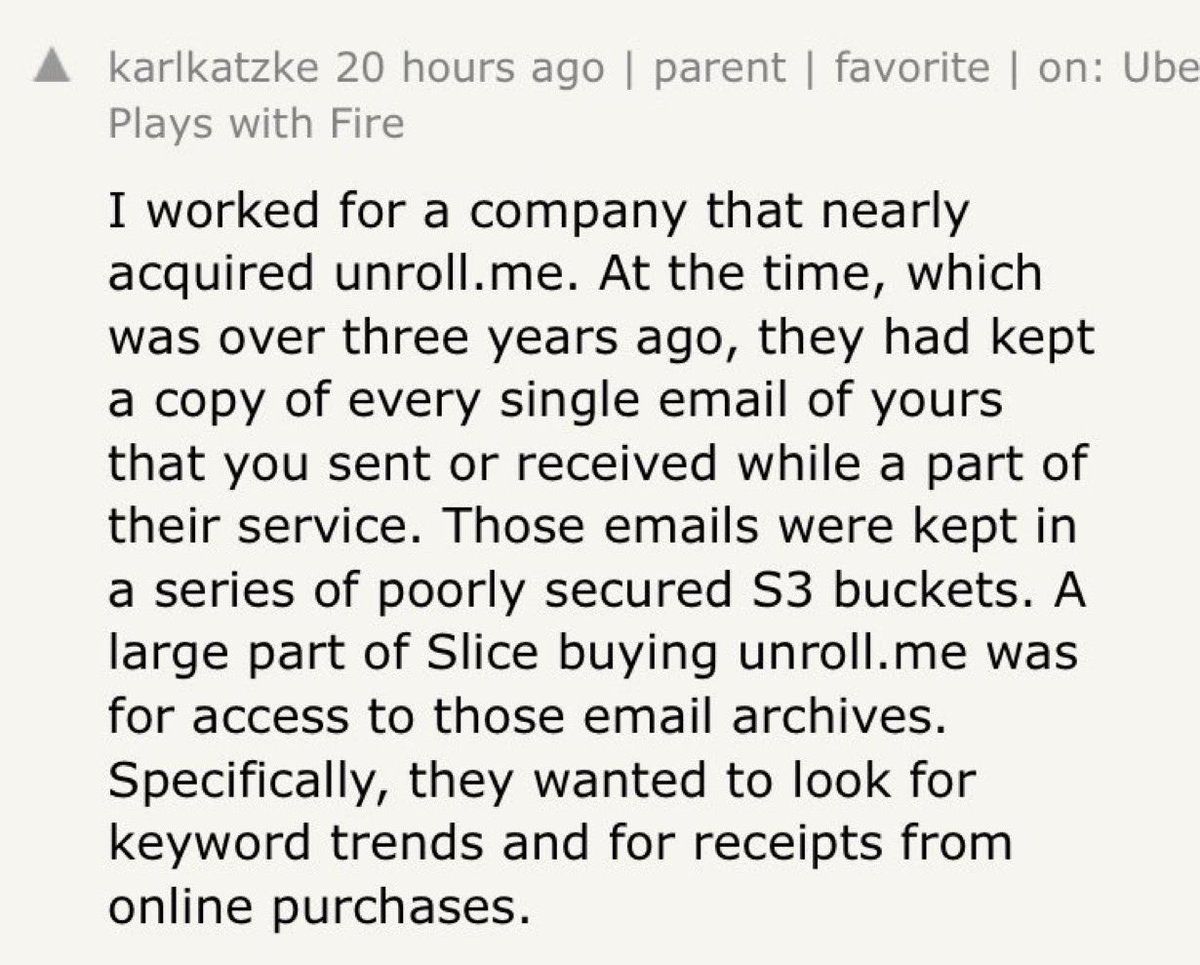-
Does Google/Alphabet scan your messages in Gmail for showing targeted ads? No. Does Google/Alphabet scan your messages in Gmail for other purposes? Yes. Are there other risks with Gmail? Yes. Thread ->
-
…in reply to @axbom
The notion 'Gmail scans your e-mails to show ads' is still often being repeated as truth in articles and other reporting, even as Google announced in June 2017 that Consumer Gmail content would no longer be used or scanned for any ads personalisation. wired.co.uk/article/google-reading-personal-emails-privacy
-
…in reply to @axbom
This allows Google to appear benevolent when talking about Gmail in these terms, as CEO Sundar Pichai did earlier this week when stating: "We don't use data from Gmail for ads, Congressman".
-
…in reply to @axbom
But make no mistake in understanding that the content in your Gmail (as well as Gsuite) accounts are scanned for other purposes. Depending on your settings this could be to suggest replies, remind you to reply, or to understand who your priority contacts are (for notifications).
-
…in reply to @axbom
Of course, some reasons will be more legitimate than others: Gmail will scan for spam (as most e-mail services do) and if you have rules set up (such as "set this tag if the e-mail contains this word") then scanning is of course vital. And attachments are scanned for viruses.
-
…in reply to @axbom
Here's a CNet article describing what you can and can't turn off: cnet.com/news/the-new-gmail-has-automated-scans-heres-what-you-can-and-cant-turn-off/
-
…in reply to @axbom
But something many fail to consider is that a huge Gmail security issue is often when users themselves (yes, you) give access to third party apps to read all your e-mail (e-mail clients, meeting managers, subscription services and more) thus exposing all e-mail to more companies.
-
…in reply to @axbom
Google provides this blog post to address how careful you need to be in allowing access for third-party applications. Unfortunately I don't believe this is enough for the most users. (Why would my e-mail service allow this if it wasn't safe?) blog.google/technology/safety-security/ensuring-your-security-and-privacy-within-gmail/
-
…in reply to @axbom
Once you grant that third-party access, pretty much anything can happen with your e-mail. That's why it's imperative that you know what will be done with it, and that you do trust the 3rd party. abc.net.au/news/2018-07-04/google-admits-it-allows-external-apps-to-access-user-data/9938556
-
…in reply to @axbom
Even privacy-focused e-mail clients that people use to access and manage Gmail are sometimes caught selling your 'anonymized' data to corporate giants in the finance, travel and e-commerce sectors: digitaltrends.com/mobile/third-party-email-apps-spying-inboxes/
-
…in reply to @axbom
In 2017 it was found out that the third-party app unroll.me (for managing newsletter subscriptions) were not only selling personal data to Uber, but also downloading and storing e-mails beyond the owners' reach.
-
…in reply to @axbom
Let's agree Google aren't warning you enough about these risks, and that you may, right now this minute, want to visit this link to see what third party apps currently have access to your Google account (not just Gmail): myaccount.google.com/permissions
-
…in reply to @axbom
In fact, you may want to visit myaccount.google.com on the regular to consider, and manage, what Google knows about you, what you are sharing with who, where you are logged in and what third party apps (and companies) can see all your data.
-
…in reply to @axbom
When it comes to your content, your best bet is to consider your trust for parties you store it with and if it's transparent what happens to it (and how easy that info is to understand). Understanding what governmental agencies can request your data may be relevant as well.
-
…in reply to @axbom
And for broader ethical decision-making, you may want to go further and understand the underlying business model and workings of the companies you support by placing your data with them. eff.org/deeplinks/2020/03/google-says-it-doesnt-sell-your-data-heres-how-company-shares-monetizes-and
-
…in reply to @axbom
Here's a good walk-through of how to delete some of the data Google is indefinitely storing about you. cnet.com/how-to/google-collects-a-frightening-amount-of-data-about-you-you-can-find-and-delete-it-now/
